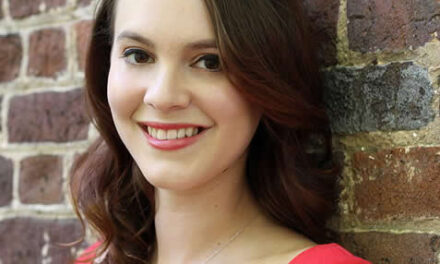Music Director Dmitry Sitkovetsky only had to exchange one work on his pair of orchestral concerts (built around the theme “Fairy Tales”) to accommodate the replacement of Helen Nightengale and Lynn Harrell, who were to have played Brahms’ Double Concerto, Op. 102. Gary Hoffman has made chamber music appearances in the Triangle so it was a treat to hear him in Dvorák’s Cello Concerto in B minor, Op. 104, the pinnacle of the cello repertoire. Rimsky-Korsakov’s Scheherazade, Op. 35, is one of the great showpieces of the Romantic repertoire, and this performance found every section of the Greensboro Symphony playing at the top of their form.
Dvorák’s Cello Concerto dates from his second sojourn in America. In March 1894 he attended the premiere of Victor Herbert’s Second Cello Concerto with the composer as soloist and was inspired to respond to a long-standing request from his friend Hanus Wilhan to write a cello concerto. It was completed in February 1895 and slightly revised in June after the composer returned to Prague. His homesickness while in New York is reflected in the concerto’s nostalgic melodies. The yearning second theme in the first movement was one of the composer’s favorite melodies. The orchestration is a wonderful menu that ranges from the fiery to folk-like dances.
The extended lead-in to the solo was flawlessly prepared by Sitkovetsky and his musicians. Hoffman’s performance was breath-taking from the first notes. His tone was full and rich across its compass and his control of intonation was astounding, no matter how fast the passage. His refined application of dynamics and exquisite phrasing raised this performance far above just a showpiece of technical mastery. I have seldom heard anyone approach the extent to which Hoffman brought out the poetry of this masterpiece.
Since Sitkovetsky has taken the helm, every section of the Greensboro Symphony has made enormous strides in tightening ensemble, both within and between sections. String sections play with refined expression, as if they were one player. All of this paid off in spades in their sizzling performance of Rimsky-Korsakov’s Scheherazade. Practically every principal player had a moment to shine in the myriad of significant solos by the great Russian master of orchestration. Inspired by Arabian Nights Entertainments, the four movements portray four of Scheherazade’s tales.
That this was going to be a special evening was immediately evident as the trombones and strings really dug into the forbidding opening motto. The role of the seductive story-teller in all four movements was taken by Concertmaster John Fadial, who wove his tale with refined tone and great expressivity. He was frequently in duet with either the warm musings of cellist Beth Vanderborgh or bardic comments from harpist Helen Rifas. Among the many woodwind players who contributed strong characterizations were flutist Debra Reuter-Pivetta, oboist Mary Ashley Barret, bassoonist Carol Bernstorf, and clarinetist Kelly Burke. Principal horn Robert Campbell, trombonist John Melton, trumpeter Judith Saxton, and timpanist Peter Zlotnick, with a large battery of percussion, added to the orchestral brilliance. Bravo!












